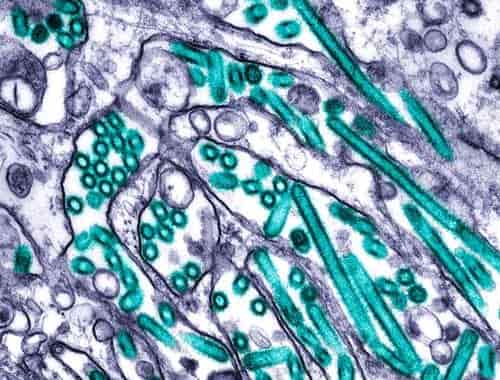
PreadyPort MDR1

- A ready-to-use monolayer cell-based assay for MDR1 in-vitro evaluation of drug interactions with the P-gp/MDR1 transporter. The assay is suitable for performing both inhibition and substrate assessments. The MDR-1 kit consists of 24- or 96-well permeable plates seeded with differentiated MDCKII cells expressing MDR1 as well as the parental cell line.
PreadyPort MDR1 Applications
P-glycoprotein (MDR1) is a critical efflux transporter in the field of drug development and pharmacology. Here are some potential applications for a product like PreadyPort MDR-1:
- Drug Discovery and Development
As P-glycoprotein can affect drug absorption, distribution, metabolism, and excretion, understanding its interaction with a new drug candidate can be essential. This helps to predict the drug’s behavior in the body and can inform dosage and safety considerations.
- Drug-Drug Interaction Studies
MDR-1 plays a role in the metabolism of many drugs. Studying how a new drug interacts with MDR-1 can help identify potential drug-drug interactions, which could lead to adverse effects if two incompatible drugs are taken together.
- Pharmacokinetic Modeling
By studying the interaction of drugs with MDR-1, researchers can create pharmacokinetic models that predict how a drug will be absorbed, distributed, metabolized, and excreted from the body.
- Cancer Research
Overexpression of MDR-1 can cause multidrug resistance in cancer cells, limiting the effectiveness of chemotherapy. Researching this mechanism could aid in the development of more effective treatments.
PreadyPort MDR1 FDA Requirements
- The FDA requires the MDR1 studies to be included in the final preclinical analysis.
- PreadyPort MDR1 is a product manufactured in compliance with ISO 9001:2015
PreadyPort MDR1 in the Literature
- There are two papers that may also be of interest to you as they demonstrate the suitability of BCRP and MDR1 for testing permeability. More Info >>>
PreadyPort MDR1 Benefits
- Understanding Drug Interactions: It can be used to understand how drugs interact with the P-glycoprotein (MDR1), a key component of the body’s defense mechanism against potentially harmful substances. This understanding could help predict a drug’s pharmacokinetics, including absorption, distribution, metabolism, and excretion.
- Identifying Potential Drug Resistance: MDR1 plays a significant role in multidrug resistance, particularly in cancer treatment. Understanding how drugs interact with MDR1 can be beneficial in the development of effective treatment strategies.
- Reducing Adverse Drug Reactions: Understanding the interaction between a drug and MDR1 can help identify potential adverse reactions, especially in the case of drugs that are substrates for this protein. This could lead to safer prescribing practices and fewer adverse drug reactions.
- Facilitating Drug Development: Early testing of drug candidates with MDR1 could identify potential issues with drug metabolism and effectiveness, leading to more efficient drug development and reducing the risk of late-stage failure.
Cell Permeability Testing Market
- For more information on the overall market place growth forecasts please refer to our market-Forecasts page.
PreadyPort MDR1 Chart
| PreadyPort-MDR1 Kit FORMATs | Product Numbers |
|---|---|
| PreadyPort-MDR1 (24-Multiwell) | KRECE-MDR01 |
| PreadyPort-MDR1/CTRL 1:1 (24-Multiwell) | KRECE-MDR02 |
| PreadyPort-MDR1 (96-Multiwell) | KRECE-MDR50 |
| PreadyPort-MDR1/CTRL 1:1 (96-Multiwell) | KRECE-MDR51 |
| PreadyPort-MDR1/CTRL Custom setup (96-Multiwell) | KRECE-MDR60 |
| PreadyPort-CTRL (24-Multiwell) | KRECE-CTR01 |
| PreadyPort-CTRL (96-Multiwell) | KRECE-CTR50 |
FAQ:
What does MDR1 stand for?
MDR1 stands for “Multidrug Resistance Protein 1.” It is a gene that encodes for an important protein known as P-glycoprotein (P-gp) or ATP-binding cassette sub-family B member 1 (ABCB1).
What is MDCK for drug permeability?
MDCK (Madin-Darby Canine Kidney) cells are an epithelial cell line derived from the kidney of a normal adult female cocker spaniel. MDCK cells are widely used in drug permeability studies as an in vitro model system for assessing the transport properties of drug candidates across biological membranes, such as the blood-brain barrier and other epithelial and endothelial barriers.
What is the role of P-gp efflux transporters in drug disposition?
P-glycoprotein (P-gp), encoded by the MDR1 (Multidrug Resistance Protein 1) gene, is an efflux transporter that plays a crucial role in drug disposition. It is a member of the ATP-binding cassette (ABC) transporter family and is expressed in various tissues, including the intestine, liver, kidney, and the blood-brain barrier.
What are the characteristics of MDCK cells?
Madin-Darby Canine Kidney (MDCK) cells are an epithelial cell line derived from the kidney of a normal adult female cocker spaniel. They have been widely used as an in vitro model in various biological studies, including drug permeability and transport research. Some key characteristics include epithelial morphology and tight junction formation.
How important is MDR1 P-glycoprotein?
MDR1 P-glycoprotein is crucial in the body as it plays a significant role in the pharmacokinetics of many drugs. This protein is involved in the transportation of various molecules across the cell membrane, including many drugs. It’s particularly important in cancer treatment because its overexpression can lead to multidrug resistance in cancer cells. In veterinary medicine, some breeds of dogs have a mutation in the MDR1 gene, making them more sensitive to certain drugs, which can lead to severe adverse reactions.
What does the MDR-1 Testing Kit measure?
The MDR-1 Testing Kit measures the presence or absence of mutations in the MDR1 gene, which codes for P-glycoprotein. This gene plays a critical role in how a body metabolizes certain medications. In animals (specifically certain dog breeds), a mutation in this gene can lead to increased sensitivity to various drugs.
What are the components included in the MDR-1 Testing Kit?
PreadyPort MDR1 kit contains MDCKII cells transfected with the ABCB1 gene to overexpress the multidrug resistance protein 1 (MDR1), a membrane transporter of considerable clinical importance, to evaluate drug-transporter interactions in preclinical stages1.
PreadyPort is delivered in a 24-well/plate format with a unique Shipping Medium (a gel-like cell culture medium) established by READYCELL which enables the transport of cells at room temperature and in a ready-to-use format.
Is the MDR-1 Testing Kit compatible with standard laboratory equipment?
Once the samples are returned to the lab, standard laboratory equipment should be adequate to process them. The equipment required includes a PCR machine and other materials for DNA extraction, amplification, and sequencing.